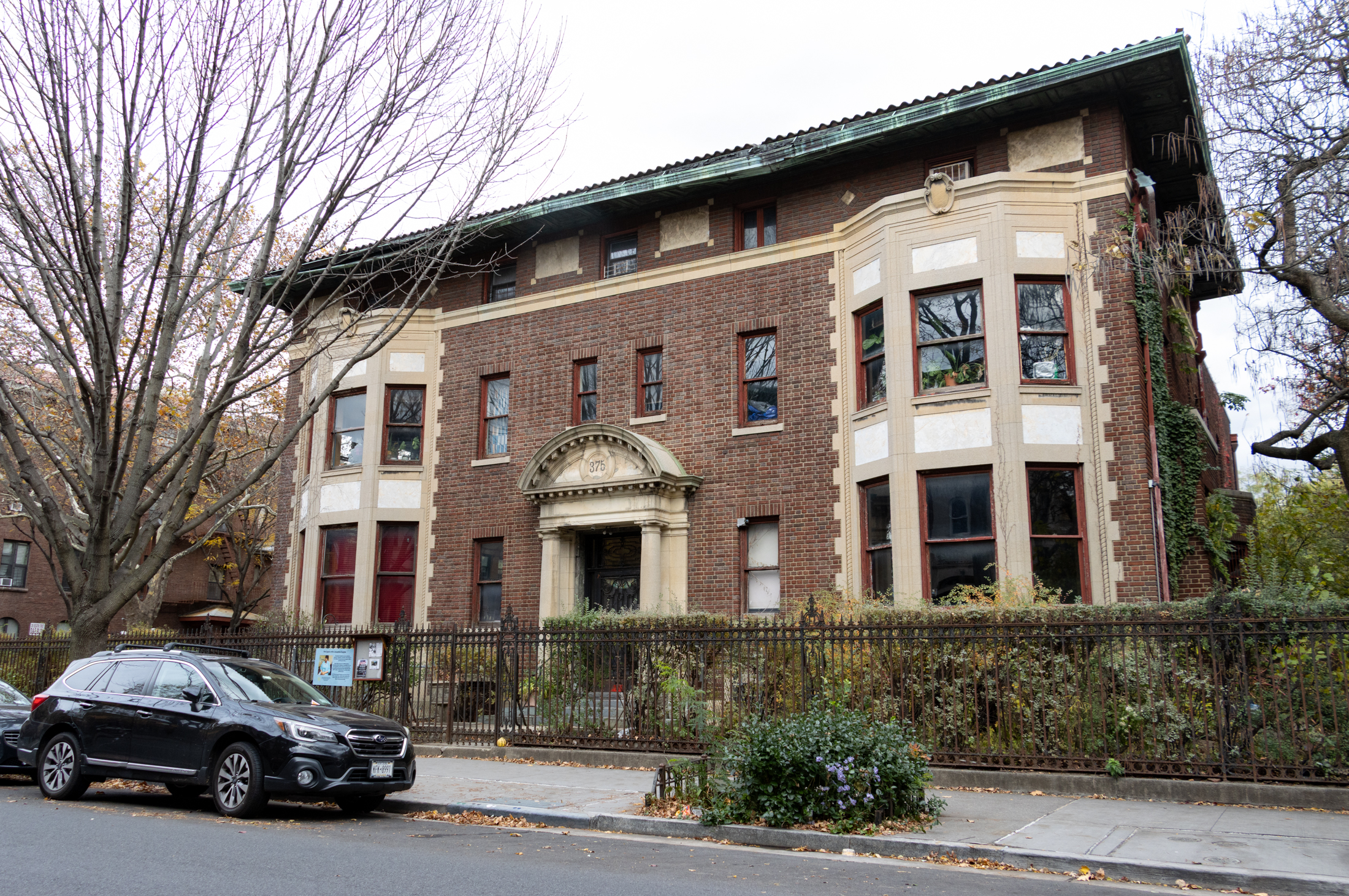The 'Judicial Don Quixote' on the Foreclosure Frontlines
This morning the Times ran a profile of Brooklyn State Supreme Court Judge Arthur M. Schack, who “fashions himself a judicial Don Quixote, tilting at the phalanxes of bankers, foreclosure facilitators, and lawyers who file motions by the bale.” Schack is known for tossing out foreclosure motions on technicalities: “Justice Schack, like a handful of…

 This morning the Times ran a profile of Brooklyn State Supreme Court Judge Arthur M. Schack, who “fashions himself a judicial Don Quixote, tilting at the phalanxes of bankers, foreclosure facilitators, and lawyers who file motions by the bale.” Schack is known for tossing out foreclosure motions on technicalities: “Justice Schack, like a handful of state and federal judges, has taken a magnifying glass to the mortgage industry. In the gilded haste of the past decade, bankers handed out millions of mortgages—with terms good, bad and exotically ugly—then repackaged those loans for sale to investors from Connecticut to Singapore. Sloppiness reigned. So many papers have been lost, signatures misplaced and documents dated inaccurately that it is often not clear which bank owns the mortgage. Justice Schack’s take is straightforward, and sends a tremor through some bank suites: If a bank cannot prove ownership, it cannot foreclose.” Schack, who is Brooklyn born and bred, began crossing swords with banks over foreclosures in 2007, when they started to spike here. “Banks had given out loans structured to fail,” he says.
This morning the Times ran a profile of Brooklyn State Supreme Court Judge Arthur M. Schack, who “fashions himself a judicial Don Quixote, tilting at the phalanxes of bankers, foreclosure facilitators, and lawyers who file motions by the bale.” Schack is known for tossing out foreclosure motions on technicalities: “Justice Schack, like a handful of state and federal judges, has taken a magnifying glass to the mortgage industry. In the gilded haste of the past decade, bankers handed out millions of mortgages—with terms good, bad and exotically ugly—then repackaged those loans for sale to investors from Connecticut to Singapore. Sloppiness reigned. So many papers have been lost, signatures misplaced and documents dated inaccurately that it is often not clear which bank owns the mortgage. Justice Schack’s take is straightforward, and sends a tremor through some bank suites: If a bank cannot prove ownership, it cannot foreclose.” Schack, who is Brooklyn born and bred, began crossing swords with banks over foreclosures in 2007, when they started to spike here. “Banks had given out loans structured to fail,” he says.
A ‘Little Judge’ Who Rejects Foreclosures, Brooklyn Style [NY Times]
Photo by steakpinball.





There are sure some lazy lawyers on this site. If you read the article, you will see the judge’s quote to the effect that he wants to make sure the bank owns the property before it forecloses. This is basic jurisprudence. The bank has the burden of demonstrating a right to the relief sought. Only the lazy and privileged would bemoan having to satisfy their burden of proof. And to claim this judge is biased for this reason is beyond chutzpah. Try to think about the people who have had their rights infringed because of shenanigans by banks and mortgage companies.
“what’s the inherent problem with the notion that businesses should be run correctly, as defined by the law, and that costs of running them correctly are passed on to consumers? and won’t those banks that can do this most efficiently be able to offer lower rates, and thus competition thrives? and isn’t this how a (regulated) capitalist system ought to work? isn’t it, in fact, MORE activist, more socialist, to suggest that we ought to rubber stamp banks’ mistakes in favor of what some brownstoner posters have deemed is the greater good?”
I couldn’t agree more, i disagree. Thank you very much. I was beginning to wonder if it was me or if everyone else (excluding bxgrl and crazypants) had gone slightly loco.
“You don’t instinctively think that is an accurate appraisal of law?”
No, I don’t.
“I read online on redstate.com…”
You may as well have just stopped typing there.
I’m not a lawyer but I do think the judge has been misconstrued. I don’t think he’s an activist in the sense that lechacal seems to think- but having seen how banks and mortgage lenders have jerked around people, why shouldn’t he question shoddy paperwork? There have been instances of people being foreclosed on- and it was the wrong person. There are people who have sold houses out from under rightful owners who get their first clue when the marshall shows up. He’s right to question and the point is, all the bank has to do is come back with corrected paperwork. The guy actually reads this stuff- I love him for not being a rubberstamper. We let murderers off on technicalities- and rapists and thieves. I have more outrage over that than I do over a judge who expects a certain standard of proof in a contract. My 2 cents.
this guy is actually “taking away” banks’ securities. he’s making them prove they have such a security interest in the first place, as he ought to do, and demanding that the banks meet the procedural rigors that apply to anyone. in other words, he’s probably not even getting to the point of interpreting the contract (as fascinating as this 1L discussion of contract interpretation has been).
are you telling me that it would somehow be more fair to take away someone’s home (and give it to some bank, who then sells it to some bargain hunter, at which point it can’t be clawed back) when it’s not clear who’s actually entitled to it, rather than to force the bank to do the work to show it has standing, or a prima facie case, or a valid claim? if the banks are afraid of a “jail sentence for an illegal right on red,” perhaps they, like all civil litigants, ought to wait until they have a clear case before they file. or are you suggesting that we ought just to take away the house from the individual, since we know he can’t afford it, just to punish him for his misdeeds, even in the absence of proof? sorry, but that’s not how civil law works.
keep in mind that this problem is, as antidope says, a direct symptom of the sloppy securitization of mortgages, and if banks haven’t figured out they need to fix that, then they deserve the “jail sentences” they’re getting.
setting that aside, what’s the inherent problem with the notion that businesses should be run correctly, as defined by the law, and that costs of running them correctly are passed on to consumers? and won’t those banks that can do this most efficiently be able to offer lower rates, and thus competition thrives? and isn’t this how a (regulated) capitalist system ought to work? isn’t it, in fact, MORE activist, more socialist, to suggest that we ought to rubber stamp banks’ mistakes in favor of what some brownstoner posters have deemed is the greater good?
agree with the general point about perceived bias, though. this judge just bought himself a recusal motion in all of his mortgage cases.
You don’t instinctively think that is an accurate appraisal of law? That’s what makes it such a great quote.
“Theodore is in the ground”
–first line of “The Alienist” by Caleb Carr
I read online on redstate.com that Teddy’s legacy is the partisan Supreme Court nomination process, brought on by his leading the fight against Bork.
That’s the kind of thinking that kept him off the Supreme Court.
“Law is philosophy carried into the marketplace.”
–Robert Bork
“i wonder who’s getting billed?”
LOL
***Bid half off peak comps***